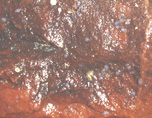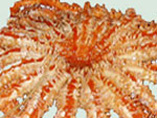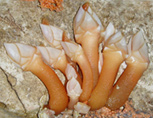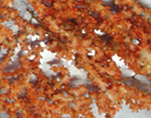NZ government calls compromise UN draft resolution "progress"
Contrary to the disappointment of other moratorium advocates, the New Zealand government took a different view of the outcome of UN committee negotiations.
In a statement by the Minister of Fisheries, Jim Anderton, entitled "NZ continues to progress bottom trawling at the UN" he said "New Zealand is heartened by a significant advance in international efforts to regulate high seas bottom trawling".
Mr Anderton said "the outcome from this year's negotiations is not as specific and sweeping as measures that we and others like Australia had proposed, but it is a major step forward from where we have been".
The compromise draft resolution which will go before the UN General Assembly on December 7th is extremely weak, and is certainly not progress.
Nations have had the same ability to act for many years, but most have not.
New Zealand is pleased with one outcome it advocated, for effective measures to control bottom trawling in those areas of the high seas already being managed by a Regional Fisheries Management Organisation (RFMO), and effective interim measures where an RFMO is under negotiation.
There are six RFMOs in existence with the power to regulate bottom trawling. Only the Commission for the Conservation of Antarctic Marine Living Resources (CCAMLR) has regulated bottom trawling which actually, does not occur in its area of jurisdiction.
Seventy-five percent of the world's oceans, including all of the Pacific, the majority of the Atlantic, and all of the Northern Indian Ocean are unregulated with no RFMOs. The recently formed Southern Indian Ocean RFMO took six years to form and will take many more to establish policies and regulatory controls.
Interim measures were rejected at the recent second meeting of the South Pacific RFMO in Hobart.
It remains to be seen how quickly and effectively existing and new RFMOs will introduce controls. So it looks as if the New Zealand fleet has a few years of unrestricted high seas bottom trawling left.
The New Zealand government has told us how hard it has worked at the UN for a strong outcome on bottom trawling. Well now it can secure a strong outcome with its own high seas fleet, to ensure vessels carrying the New Zealand flag are not causing harm, in accordance with the new UN resolution. This could have been done five years ago.
And while it acts for the high seas, New Zealand should do the same in its own EEZ. |










